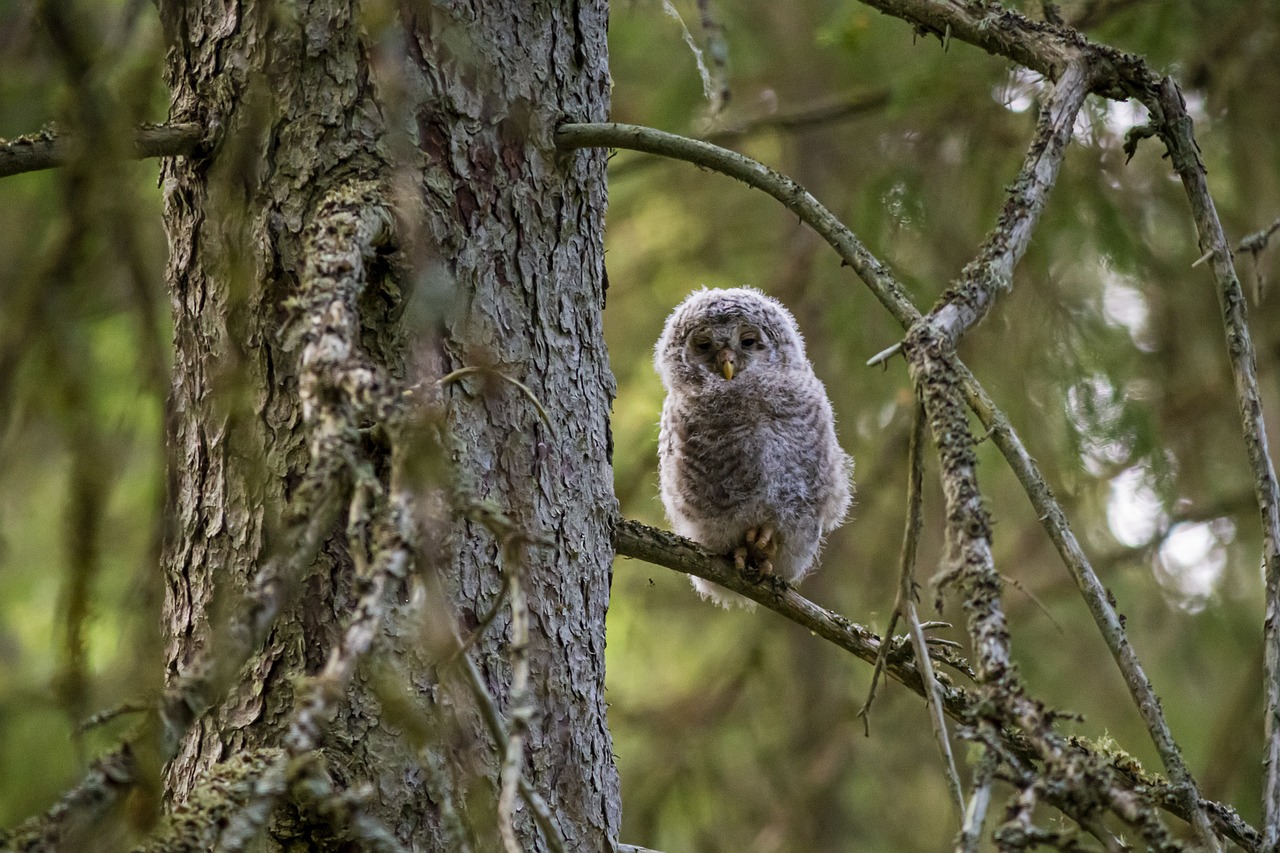The Ural Owl (Strix uralensis) is a large owl species belonging to the genus Strix. Here’s some information about this magnificent bird:
- Appearance: Ural Owls are large and robust owls with rounded heads and no ear tufts. They have striking facial disks with dark eyes and a yellowish-orange beak. Their plumage is typically dark brown with various shades of gray and brown mottling, providing excellent camouflage in their forest habitats. They have a wingspan of about 110-134 centimeters (43-53 inches) and can weigh between 500 and 1,100 grams (1.1 to 2.4 pounds), with females being larger than males.
- Habitat: Ural Owls inhabit dense forests, often preferring mixed woodlands with a combination of coniferous and deciduous trees. They are found across a wide range of forested habitats in Europe and Asia, including taiga, boreal forests, mountainous regions, and sometimes even wooded areas near human settlements.
- Distribution: Ural Owls have a wide distribution range, spanning from Scandinavia and northern Europe across Russia and Siberia to eastern Asia, including Japan. They are also found in parts of Central Asia and the Caucasus region.
- Diet: Ural Owls are nocturnal hunters, preying primarily on small mammals such as voles, mice, rats, and squirrels. They also hunt birds, insects, and other small vertebrates. Ural Owls are skilled hunters and use their keen vision and acute hearing to locate prey in the darkness of night.
- Behavior: Ural Owls are solitary birds and typically hunt alone. They are known for their low, hooting calls, which are often heard during the breeding season. Ural Owls are cavity nesters, using old nests of other birds, tree hollows, or even nest boxes for breeding.
- Conservation: Ural Owls are not considered globally threatened, although they may face localized threats from habitat loss, deforestation, and human disturbance. Conservation efforts aimed at preserving mature forests and protecting nesting sites are important for the long-term survival of this species.
Overall, the Ural Owl is a majestic and iconic bird of prey, admired for its beauty, hunting prowess, and important role in forest ecosystems.
Visited 499 times, 21 visit(s) today
Views: 473
Subscribe to the newsletter:
